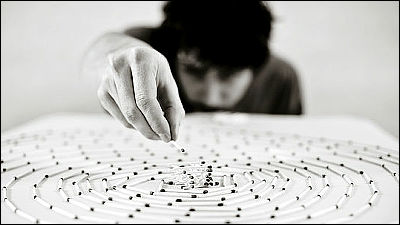6 points to keep in mind to clear the fog in your head and focus on things

'It feels like a fog on my head' means that my head is dull and I can't concentrate on things well, I can't remember easily, or my judgment is weak.
Want to Reduce Brain Fog And Improve Clear Thinking? Give up These Things Immediately
https://thriveglobal.in/stories/want-to-reduce-brain-fog-and-improve-clear-thinking-give-up-these-things-immediately/
◆ 1: Clean up the messy room
'Confusion creates stress. There is a strong connection between your physical and mental space,' Oppong said, noting that cluttered rooms have a negative effect on mental and health. It's no surprise that Marie Kondo, a tidying consultant, wrote ' The Magic of Tidying Up Life ' that became popular all over the world.
Oppong says you should clean your office, desk, and room to calm your brain, but it's reckless to suddenly try to clean the entire area. Therefore, Oppong recommended that you make it a habit to 'concentrate and clean a part for a short time' and expand the scope of long-term organization.
◆ 2: Do not challenge multitasking
Some people may yearn for multitasking, where many things are done in parallel, but switching between multiple tasks can be difficult and can lead to poor concentration. Since the brain is used to switch tasks, productive time is lost, so it is better to limit the tasks to be performed at one time to one. To resist the temptation to switch tasks, Oppong advises 'remove tools and devices that make you want to switch tasks when you see them.'
In addition, it is also effective to narrow down the important tasks to three and concentrate on one task as much as possible. Even if you really want to switch tasks, you can reduce brain fatigue associated with multitasking by choosing one of the three tasks.

◆ 3: Not distracted by urgent but not important
While there are 'important things that need to be dealt with urgently' in the world, there are also 'urgent but not important things'. If something urgent but not important interrupts you while you're engaged in an important task, you lose productivity, but when the important task is a hassle, you just want to deal with an urgent task. It is something that will end up.
Oppong argued that we should stop engaging in these urgent but non-essential things and make good use of our finite time. 'The ability to distinguish between urgent and critical tasks has a lot to do with success. Key tasks contribute to long-term missions, values, and goals,' he said. I complained that it was important.
◆ 4: Don't immerse yourself in comfort
Staying in a comfortable state brings mental stability, but if you stay in a state of less mental stimulation, the connections between neurons in the brain will shrink. Oppong argues that stimulating the brain's network requires stimuli, which requires changing what you're used to and learning new things intensively.
'The key to keeping your brain youthful is your

◆ 5: Exercise
Not only is it bad for your health, but sitting all day long also has a negative effect on your brain and mood.
◆ 6: Start creation, not consumption
Consuming content is very easy and can be enjoyed in a relaxed state. However, Oppong points out that the more content you consume, the more time you lose to create content, and recommends that you stop consuming unlimited content and have a habit of creating content yourself. I will.
“Leave your curiosity to discover and pursue what you are deeply interested in. Give yourself time to create something unique. The point is when you were a kid. It's just as awe-inspiring and wondering. If you have an activity that makes you feel that way, keep it going, 'Oppong said.

Related Posts:
in Note, Posted by log1h_ik







